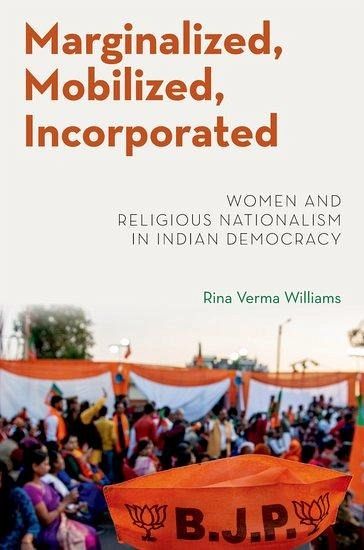Nicht lieferbar

Marginalized, Mobilized, Incorporated: Women and Religious Nationalism in Indian Democracy
Versandkostenfrei!
Nicht lieferbar
In Marginalized, Mobilized, Incorporated, Rina Verma Williams places women's participation in religious politics in India in historical and comparative perspective through a focus on the most important Hindu nationalist political parties in modern Indian history: the All-India Hindu Mahasabha and the Bharatiya Janata Party (BJP). Williams compares three critical periods to show the increasing involvement of women in Hindu nationalist politics over time, and draws on significant new data sources to construct an unmatched before-and-after view of India's watershed 2014 elections. Given that the ...
In Marginalized, Mobilized, Incorporated, Rina Verma Williams places women's participation in religious politics in India in historical and comparative perspective through a focus on the most important Hindu nationalist political parties in modern Indian history: the All-India Hindu Mahasabha and the Bharatiya Janata Party (BJP). Williams compares three critical periods to show the increasing involvement of women in Hindu nationalist politics over time, and draws on significant new data sources to construct an unmatched before-and-after view of India's watershed 2014 elections. Given that the BJP is one of the most dynamic religious/ethno-nationalist parties in the world at present, Williams' account of how it incorporated masses of women into its coalition is essential reading for scholars and students interested not just in India, but in the relationship between gender and right-wing populist politics globally.



